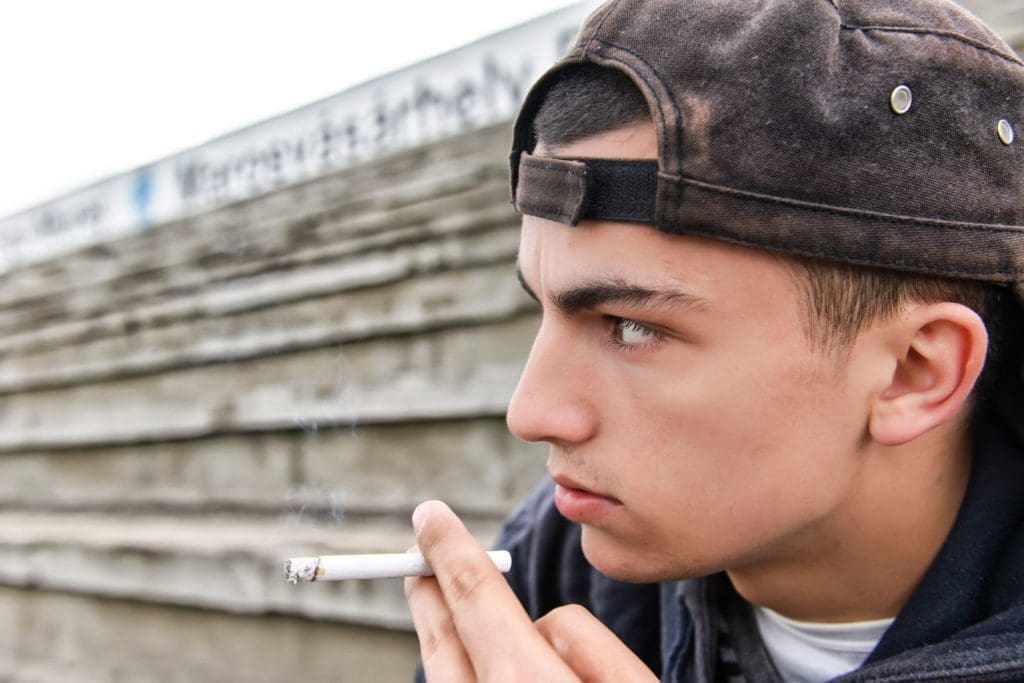
Alcohol, tobacco, and drugs are a health risk to everyone, especially children. They also are more harmful to children because they affect proper development. Most people who smoke or use tobacco products today, began at a young age. Kids and teens who use tobacco and/or alcohol are more likely to use drugs. This includes prescription and illegal drugs.
Some children go on to have substance abuse problems. The risk of this increases if the child:
- Begins using substances at an early age
- Has a family history of substance abuse
- Has friends who use or abuse substances
- Is sexually active
The American Academy of Family Physicians (AAFP) recommends that children between 12 and 17 years old avoid alcohol. Drinking alcohol while under the age of 21 is not legal and is unsafe.
Path to improved health
In the United States, alcohol, tobacco, and drug use continue to be a problem. Children can access these substances with little difficulty. There is more exposure in the media (TV, movies, video games, the internet, and ads). Peer pressure also is a constant battle.
You already protect your child from illness and danger. In the same way, you should protect them from substance use and abuse. It is critical that parents talk to their kids about alcohol, tobacco, and drugs. They all are illegal for kids to use but this doesn’t stop them. Do not assume that your kids know it’s wrong or won’t use these substances. Kids need to know about the short- and long-term health risks. There are safety and legal risks as well.
Follow the steps below to talk with your child about alcohol, tobacco, and drugs:
- Create an open, calm, and trusting setting.
- Make sure you have your child’s attention and that they have yours.
- Ask your child what they know or think about the topic.
- Teach your child about the facts of using and abusing these substances. You can use examples, such as TV shows or things you see in real life.
- Answer any questions your child has.
- Set rules with your child. Make sure they are clear and realistic. Be up front about what will happen if the rules are broken.
- Teach your child how to say no. This includes helping them build self-esteem. Teach them how to get help, if needed.
In addition to talking to your kids, you should model good behavior. Limit your alcohol intake. Avoid using tobacco and illegal drugs. If you smoke now, quit smoking. Use prescription drugs safely. Do not abuse any substances. Seek help if you have a substance abuse or addiction problem. Be open with your child about your problem so that they understand the effects.
Keep all substances out of reach of kids and teens. Do not allow your underage children to use any of these substances.
Things to consider
It is never too early or too late to begin talking to your kids about alcohol, tobacco, and drugs. Be open and honest. Allow them to ask any questions. Try not to pass judgment. It is important that you talk to your child more than one time. Keep an ongoing discussion with them. Reward your child for following rules about substance abuse. Discipline your child if the rules are broken.
If you suspect that your child may be using substances or is in danger, contact their doctor right away. They can check your child for symptoms or health conditions. They may suggest your child see a counselor or psychiatrist.
Questions to ask your doctor
- At what age should I start talking to my child about alcohol, tobacco, and illegal drugs?
- Is substance abuse genetic?
- How do I know if my child is using or abusing these substances?
- What should I do if I have a substance use or abuse problem?
Resources
American Academy of Family Physicians: Teens and Alcohol
Partnership for Drug-free Kids: Prepare to Take Action
The post %% POSTLINK %% appeared first on %% BLOGLINK %%.